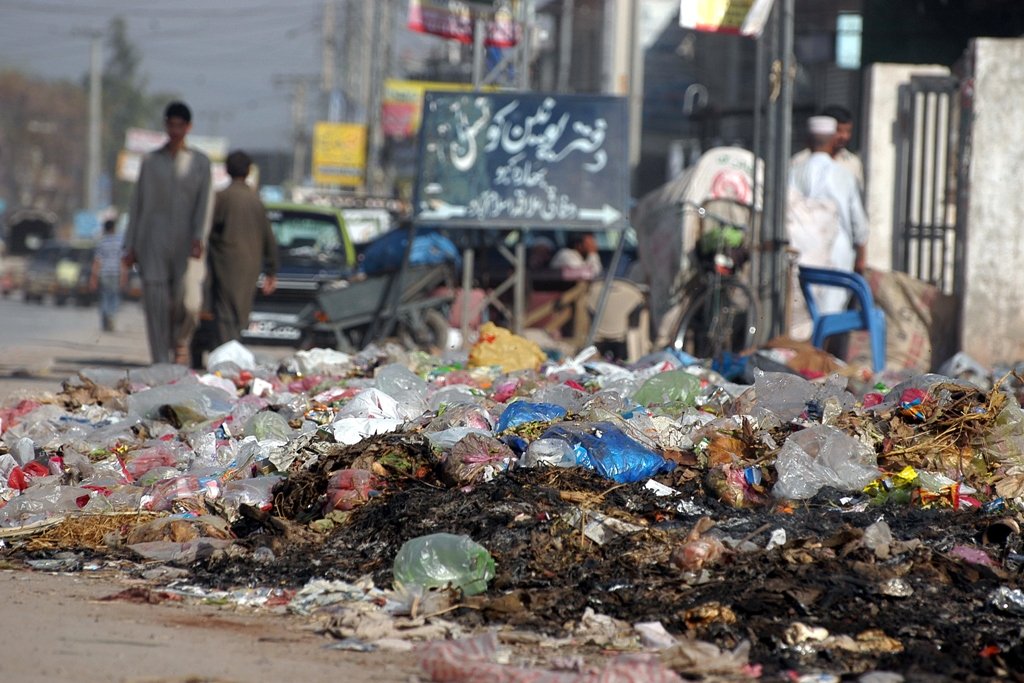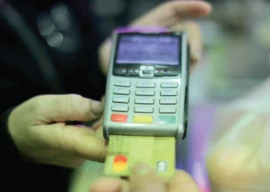
The first appeal read: “Cleanliness is one-half the faith.” The appeal is one that surfaces ever so often perhaps in a desperate attempt to gain people’s cooperation in handling an out-of-control solid waste management problem, which has exposed the inefficiency of the district and municipal authorities.
Municipal solid waste, or trash, is basically discarded waste material from residential and commercial sources. Solid waste items include plastic, paper, kitchen and vegetable waste, metals, construction materials and glass. A solid waste management system typically involves collection, transportation and disposal of the waste.
Rawalpindi and Islamabad have such systems in place, but these systems do not work too well.
Nearly 400,000 tons of trash is collected each year from the twin cities, according to official statistics. Departments responsible for solid waste management in Rawalpindi and Islamabad claim this performance is satisfactory. Yet, at least around 95,000 tons of waste materials end up uncollected and left on the streets of the two cities each year, according to official estimates.

With a 3.1 per cent nationwide urban growth rate, Rawalpindi and Islamabad --- already bustling cities with a total population exceeding five million --- are bound to swell up. The amount of solid waste generated in the twin cities might also double or quadruple in a few years.
There is some hope: The Rawalpindi district government is looking to outsource waste management to a Turkish firm. With the Supreme Court’s recent notice to the capital’s civic agency to find a permanent fix for waste disposal, Islamabad might look for a private waste management firm too.
Municipal solid waste, or trash, is basically discarded waste material from residential and commercial sources. Solid waste items include plastic, paper, kitchen and vegetable waste, metals, construction materials and glass. A solid waste management system typically involves collection, transportation and disposal of the waste.
Published in The Express Tribune, February 11th, 2014.



1731570357-0/elon-musk-(1)1731570357-0-165x106.webp)
-(1)1717678110-0/Kendrick-(1)-(1)1717678110-0-165x106.webp)












COMMENTS
Comments are moderated and generally will be posted if they are on-topic and not abusive.
For more information, please see our Comments FAQ